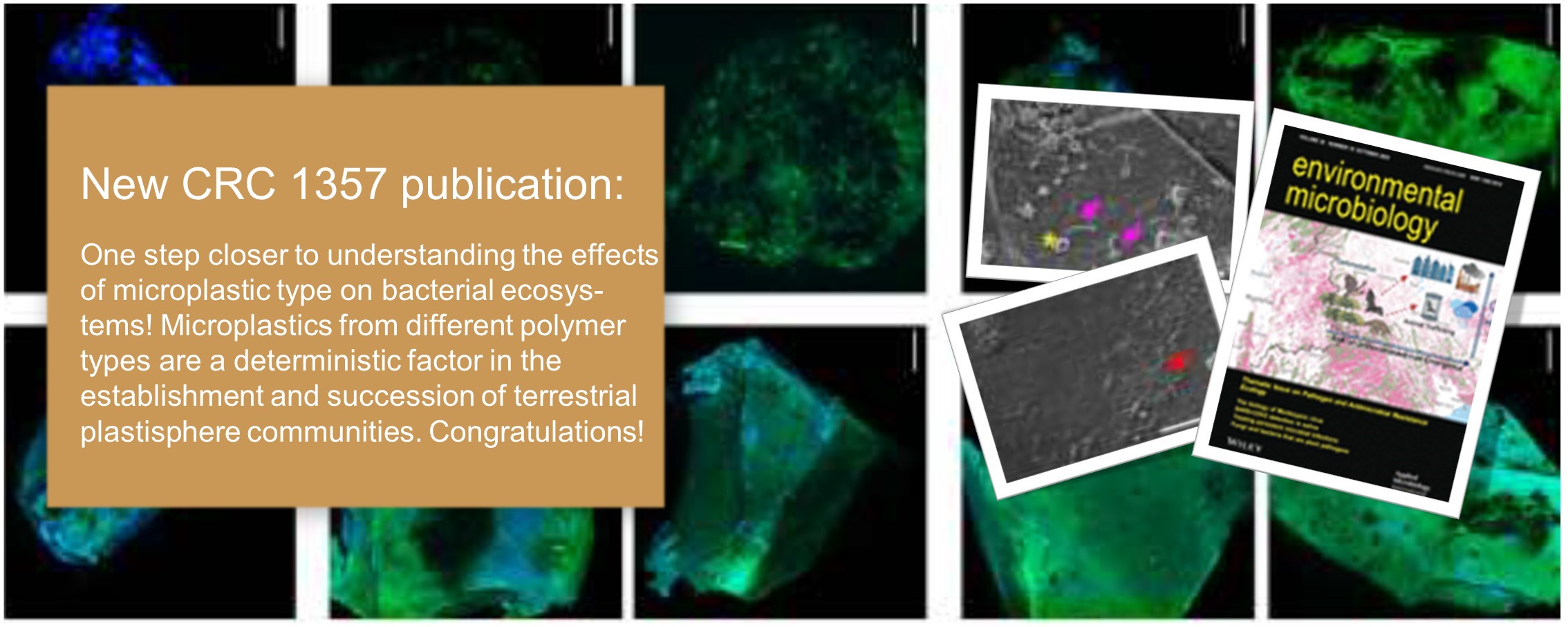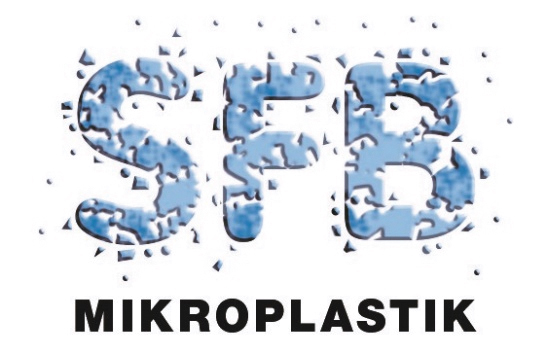News
New CRC 1357 Publication: Rohrbach (2022) - Microplastic polymer properties as deterministic factorsdriving terrestrial plastisphere microbiome assembly andsuccession in the field
04.10.2022

Congratulations to the C04 and Z02 Teams: Stephan Rohrbach; Gerasimos Gkoutselis; Linda Hink; Alfons R. Weig; Martin Obst; Astrid Diekmann; Adrian Ho; Gerhard Rambold; Marcus A. Horn on their exciting new publication in Environmental Microbiology.
"Microplastic polymer properties as deterministic factors driving terrestrial plastisphere microbiome assembly and succession in the field"
DOI: https://doi.org/10.1111/1462-2920.16234
Abstract: Environmental microplastic (MP) is ubiquitous in aquatic and terrestrial ecosystems providing artificial habitats for microbes. Mechanisms of MP colonization, MP polymer impacts, and effects on soil microbiomes are largely unknown in terrestrial systems. Therefore, we experimentally tested the hypothesis that MP polymer type is an important deterministic factor affecting MP community assembly by incubating common MP polymer types in situ in landfill soil for 14 months. 16S rRNA gene amplicon sequencing indicated that MP polymers have specific impacts on plastisphere microbiomes, which are subsets of the soil microbiome. Chloroflexota, Gammaproteobacteria, certain Nitrososphaerota, and Nanoarchaeota explained differences among MP polymers and time points. Plastisphere microbial community composition derived from different MP diverged over time and was enriched in potential pathogens. PICRUSt predictions of pathway abundances and quantitative PCR of functional marker genes indicated that MP polymers exerted an ambivalent effect on genetic potentials of biogeochemical cycles. Overall, the data indicates that (i) polymer type as deterministic factor rather than stochastic factors drives plastisphere community assembly, (ii) MP impacts greenhouse gas metabolism, xenobiotic degradation and pathogen distribution, and (iii) MP serves as an ideal model system for studying fundamental questions in microbial ecology such as community assembly mechanisms in terrestrial environments.

